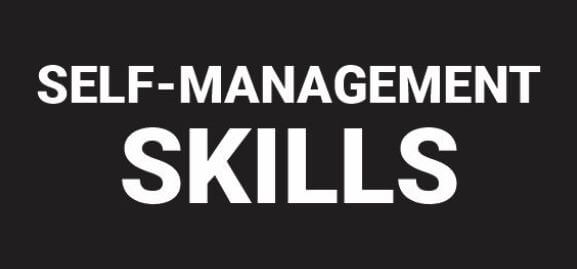Mastering self-management skills is crucial for achieving personal growth, increasing productivity, and improving emotional intelligence.
Whether you want to excel at work, build better relationships, or maintain a balanced life, self-management is the key to staying on track and making steady progress toward your goals.
In this direct-to-the-point piece, Pyo Merez, who has been a frontliner in coaching people to become the best of themselves, will discuss the 11 essential self-management skills that can greatly enhance your productivity, boost your overall well-being, and contribute to your long-term success.
Related: The Basics of Self-improvement and Personal Growth
What Are Self-Management Skills?

Self-management skills are the habits and behaviors that help you regulate your thoughts, emotions, and actions to stay focused on your personal and professional goals.
They include time management, emotional regulation, decision-making, and the ability to adapt to change.
When you strengthen these skills, you become better at handling stress, making thoughtful decisions, and staying disciplined in pursuing your objectives.
Essential Self-Management Skills to Keep You in Control
1. Time Management
Managing time effectively allows you to prioritize tasks, set deadlines, and work efficiently.
Without proper time management, distractions and procrastination can take over, making it difficult to accomplish what truly matters.
How to Improve: Create a daily schedule, use to-do lists, eliminate distractions, and set clear priorities.
2. Goal Setting and Planning
Setting clear goals and making structured plans helps you stay motivated and focused. Without a roadmap, it’s easy to lose direction and feel overwhelmed by tasks.
How to Improve: Break large goals into smaller, actionable steps, set deadlines, and track progress regularly.
Related: Boost Your Self-Confidence and Self-Esteem
3. Proactive Thinking
Being proactive means taking charge instead of waiting for things to happen. It helps you stay ahead of problems and seize opportunities.
How to Improve: Anticipate challenges, take initiative, and focus on solutions rather than dwelling on setbacks.
4. Emotional Intelligence
Understanding and managing emotions is essential for personal and professional relationships. High emotional intelligence improves decision-making, teamwork, and stress management.
How to Improve: Practice self-awareness, control impulsive reactions, develop empathy, and handle conflicts calmly.
5. Stress Management
Unchecked stress can lead to burnout and reduced productivity. Managing stress effectively keeps you focused and in control.
How to Improve: Exercise regularly, practice mindfulness, set boundaries, and take breaks when needed.
Related: Role of Social Awareness in Conflict Resolution
6. Communication Skills
Clear communication ensures you express your ideas effectively and build strong relationships. Poor communication leads to misunderstandings and missed opportunities.
How to Improve: Practice active listening, be concise in your speech, and tailor your communication style to different audiences.
7. Problem-Solving Ability
Life presents constant challenges. Strong problem-solving skills allow you to analyze situations, find solutions, and move forward.
How to Improve: Break problems into smaller parts, consider different perspectives, and experiment with creative solutions.
8. Self-Discipline
Self-discipline helps you resist distractions and stay committed to long-term goals. Without it, consistency and progress become difficult.
How to Improve: Establish routines, set non-negotiable commitments, hold yourself accountable, and remove unnecessary temptations.
9. Adaptability
Change is inevitable. Adaptability helps you embrace new circumstances and thrive in unpredictable situations.
How to Improve: Stay open-minded, learn from failures, and focus on growth rather than resistance.
10. Decision-Making Skills
Strong decision-making ensures you take responsibility for your actions and make choices that align with your goals.
How to Improve: Gather relevant information, weigh pros and cons, and trust your judgment.
11. Self-Motivation
Without motivation, maintaining discipline and persistence becomes challenging. Self-motivation helps you push through obstacles and stay focused on long-term rewards.
How to Improve: Find your “why,” celebrate small wins, surround yourself with positive influences, and remind yourself of your goals daily.
Self-Management Skills in Action
Scenario 1: Managing Work Deadlines
Emily, a marketing executive, juggles multiple projects and tight deadlines. She starts each morning by listing her tasks in order of priority, setting clear deadlines, and eliminating distractions like unnecessary phone notifications. Her structured approach allows her to stay productive and stress-free.
Scenario 2: Running a Business Efficiently
John, a small business owner, works from home. He sets a daily schedule, allocates time for different responsibilities, and avoids distractions by turning off social media during work hours.
His self-discipline helps him stay focused and grow his business steadily.
Scenario 3: Leading a Team Effectively
Sarah, an IT team leader, balances her work while ensuring her team performs efficiently.
She communicates clear expectations, encourages self-management among her team members, and follows up on their progress. Her leadership style fosters accountability and productivity.
Final Thoughts
Developing self-management skills takes practice, but the rewards are worth the effort.
When you take control of your time, emotions, and actions, you unlock your full potential and set yourself up for long-term success.
Start by focusing on one or two skills at a time, and gradually incorporate them into your daily life.
The more you practice, the easier it becomes to stay disciplined, motivated, and adaptable in any situation.
Frequently Asked Questions
What are the key self-management skills?
Key self-management skills include time management, organization, goal setting, adaptability, resilience, and emotional regulation.
How can I improve my self-management skills?
A: You can improve self-management skills by setting clear goals, prioritizing tasks, practicing time management, and developing emotional intelligence.
How do you develop personal management skills?
You can develop personal management skills by setting clear goals, prioritizing tasks, practicing time management, improving emotional intelligence, and seeking continuous self-improvement through learning and experience.
Final Thoughts
Mastering the 11 self-management skills discussed is not just a one-time accomplishment, but an ongoing journey.
Embracing these skills empowers individuals to take control of their lives, pursue their aspirations, and adapt to the ever-changing world around them.
By continuously refining these skills, individuals can foster personal growth, resilience, and a sense of fulfillment, ultimately leading to a more balanced and purposeful life.
References:
- https://myva360.com/blog/11-ways-to-build-your-self-management-skills
- https://helpfulprofessor.com/examples-of-self-management-skills/
- https://www.linkedin.com/pulse/self-management-skills-mastering-art-personal-naik-mba-capm
- https://traqq.com/blog/top-10-self-management-skills-and-how-to-improve-them/
Pyo Merez (PsyD) is a distinguished adolescent and adult psychologist at the forefront of mental health advocacy.
With expertise in cognitive and developmental psychology, focusing on social relationships, cultural contexts, and individual differences, Pyo has dedicated his career to empowering adolescents and adults.
As a sought-after speaker and panelist, Pyo shares invaluable insights on issues affecting young people, contributing to a deeper understanding of mental health and well-being in today's society.

